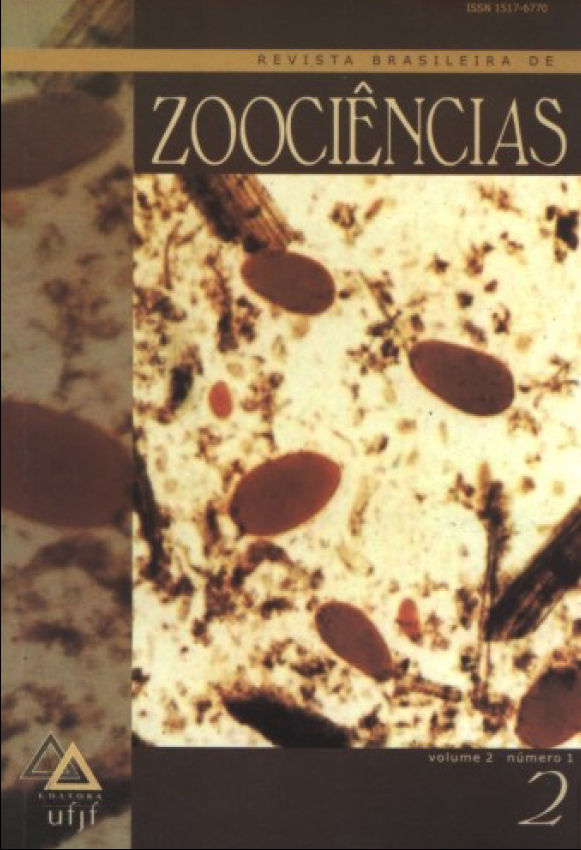Caracterização das populações de ciliados (Protista, Ciliophora) do rúmen de bovinos de corte no estado de Minas Gerais, Brasil
Resumo
Aiming at contributing to the knowledge of the relationships between bovines and rumen ciliates that naturally occur in Brazilian beef cattle, this paper presents a survey of these ciliate populations in bovines killed in Juiz de Fora Municipal Slaughterhouse, Minas Gerais State, Brazil. Material samplings were carried out monthly from August 1996 to May 1997, totalizing 100 bovines. All rumen contents samples were obtained from recentlyslaughtered animals, cross-bred holstein friesianzebu, kept in Brachiaria decumbens grass. The ciliates were quantified in a Sedgewick-Rafter chamber. The ciliate genus found and the corresponding total and average numbers, relative composition in the population and prevalence were the following: Entodinium (5.163.200; 51.632; 50,48; 100), Diplodinium (572.000; 5.837; 5,59; 98), Eudiplodinium (706.400; 7.283; 6,91; 97), Ostracodinium (989.599; 10.417; 9,68; 95), Isotricha (424.400; 4.563; 4,15; 93), Dasytricha (338.800; 3.643; 3,31; 93), Metadinium (312.800; 3.476; 3,06; 90), Eremoplastron (756.000; 8.690; 7,39; 87), Epidinium (543.200; 7441; 5,31; 73),Charonina (136.400; 2.099; 1,33; 65), Eodinium (152.400 2.583; 1,49; 59), Diploplastron (90.000; 3.750; 0,88; 24), Elytroplastron (36.400; 2.275; 0,36; 16), Polyplastron (3.600 1.200; 0,04; 03) e Buetschlia (2.000; 2.000; 0,02; 01). The populations are characterized as type B in 94% of samples.
Downloads
Não há dados estatísticos.
Downloads
Publicado
2009-09-10
Edição
Seção
Artigos



